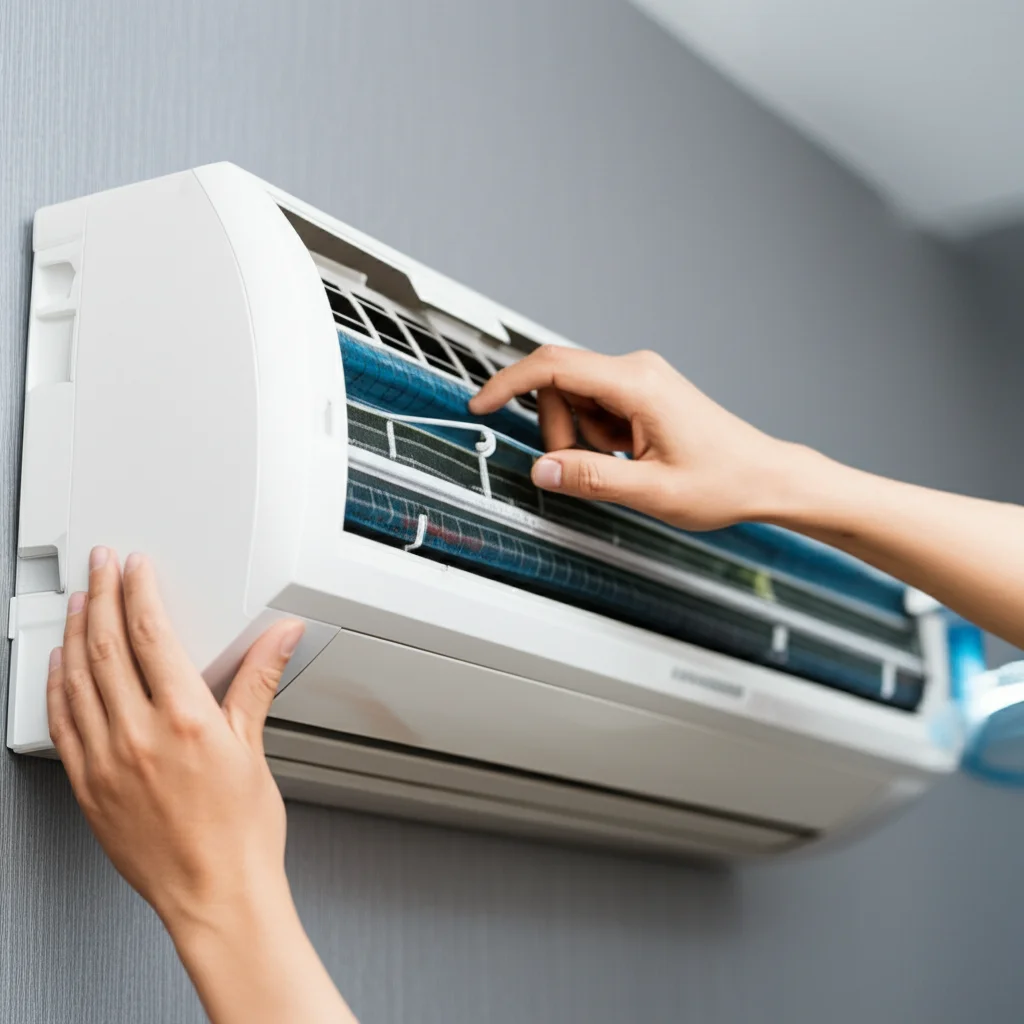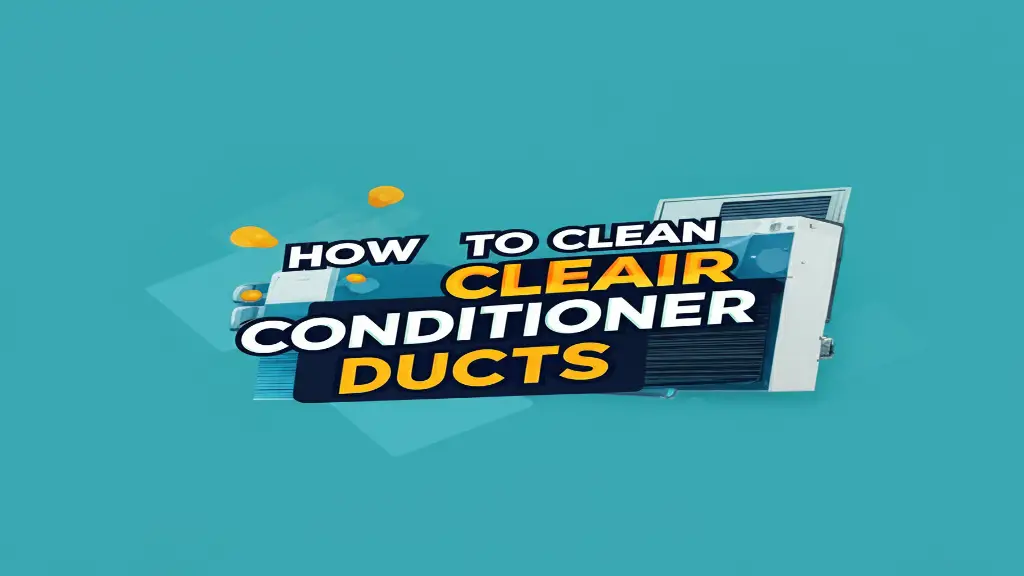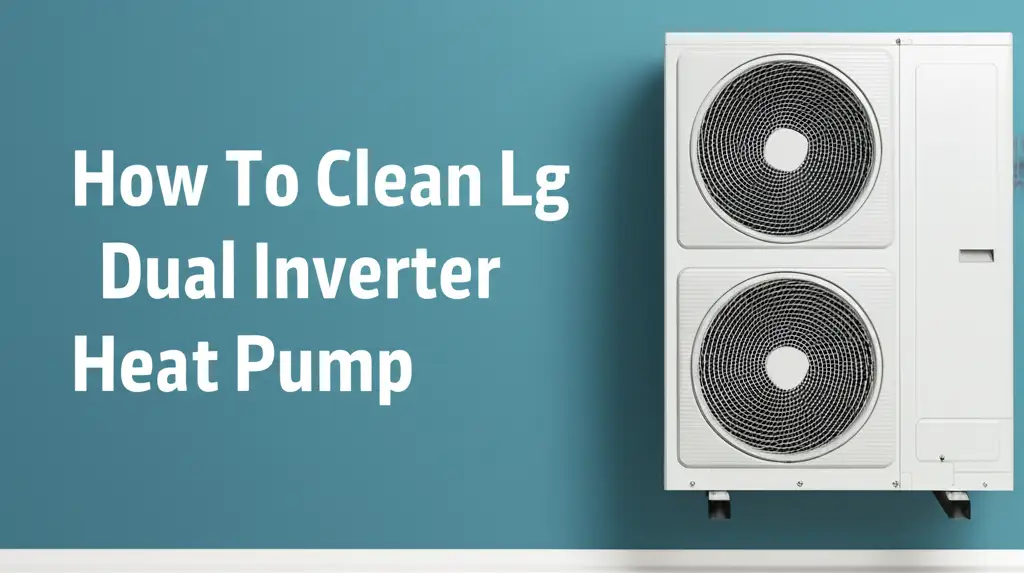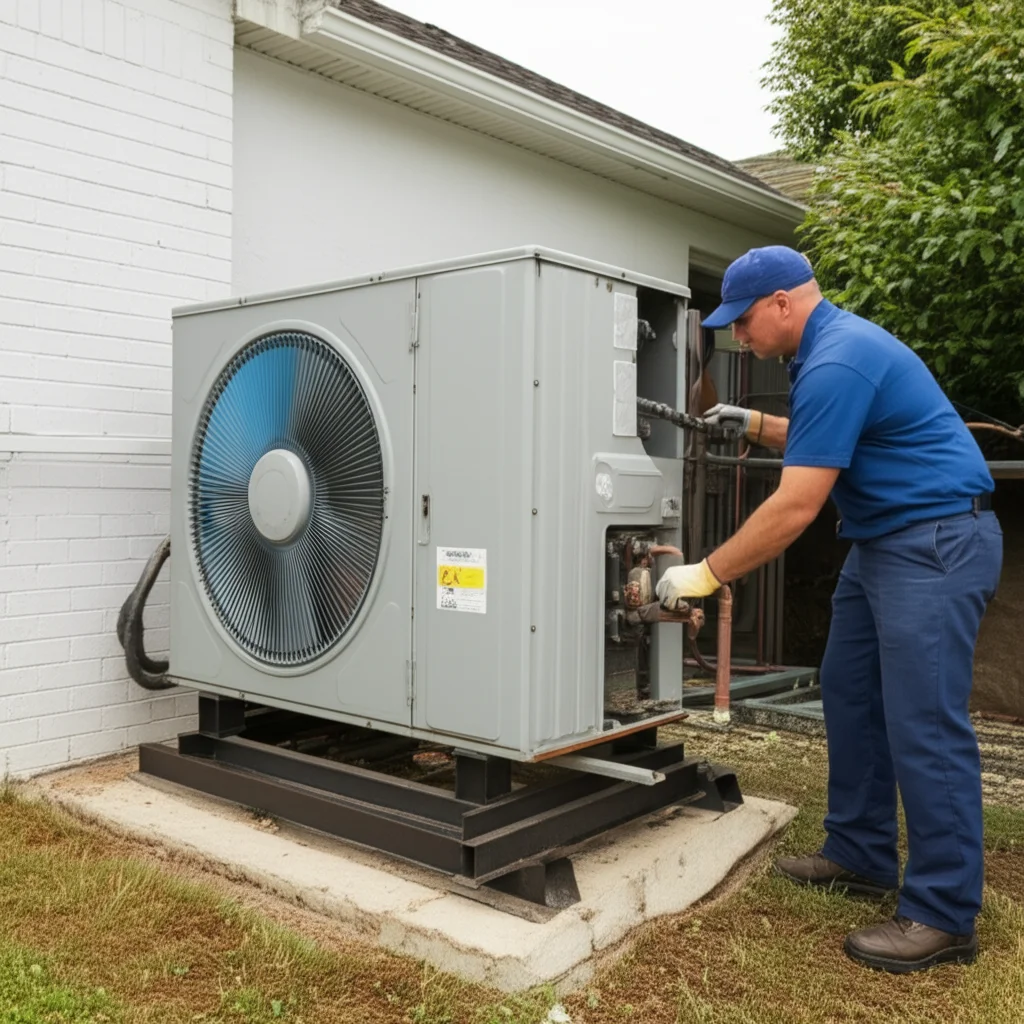· Todd Martin · Home Maintenance · 21 min read
Why Should You Change Your Air Conditioner Filter
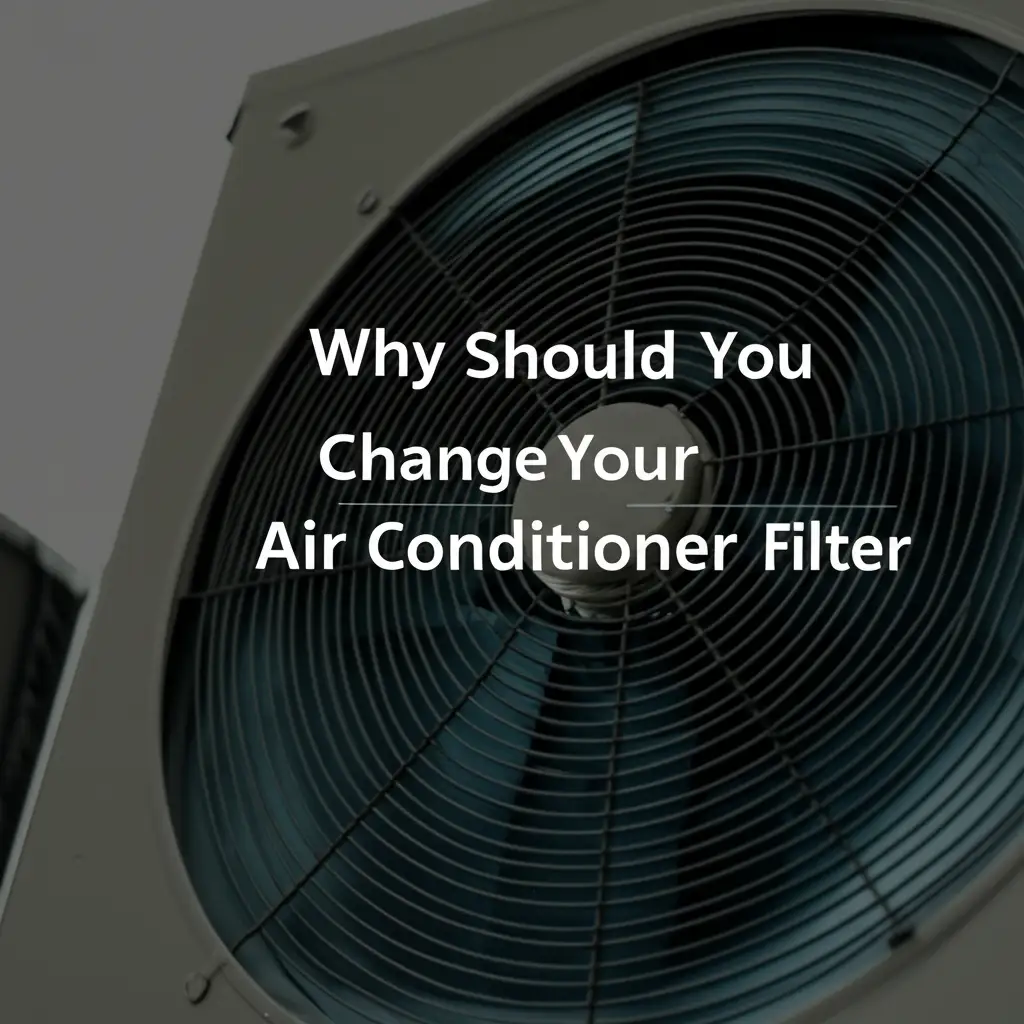
The Critical Reasons to Change Your AC Filter Regularly
Have you ever stopped to think about the unsung hero of your home comfort? It’s your air conditioner filter. This small component plays a massive role in how your entire HVAC system performs. Many people overlook replacing this simple part, but neglecting it can lead to big problems.
I remember when my own AC started struggling, and I quickly realized a dirty filter was the culprit. A clogged filter restricts airflow, forcing your air conditioner to work harder than it should. This extra strain reduces efficiency and can even damage the unit over time. We will explore why you should change your air conditioner filter, covering everything from better air quality to saving money on utility bills.
Takeaway
Changing your air conditioner filter is a simple, yet vital, home maintenance task that offers multiple benefits:
- Improved Air Quality: Removes dust, pollen, and allergens from your breathing air.
- Enhanced Energy Efficiency: Allows your AC to run smoothly, using less power.
- Extended System Lifespan: Reduces strain on components, preventing costly breakdowns.
- Lower Utility Bills: An efficient AC uses less energy, saving you money.
- Consistent Cooling Performance: Ensures proper airflow for effective temperature control.
Changing your air conditioner filter is crucial because it directly impacts indoor air quality, energy efficiency, and the longevity of your HVAC system. A clean filter removes airborne particles, ensures proper airflow, and prevents strain on your unit. This simple task leads to a healthier home and lower energy costs.
Improve Your Home’s Air Quality and Health
Your home is your sanctuary, and the air inside should be clean and fresh. Changing your air conditioner filter regularly is a key step in ensuring good indoor air quality. I learned this firsthand when I noticed my allergies acting up more frequently indoors. A dirty filter simply cannot trap particles effectively.
Over time, a filter collects a significant amount of dust, pollen, pet dander, mold spores, and other airborne contaminants. When the filter becomes overloaded, these particles can bypass it and recirculate into your living space. This means you and your family breathe in more allergens and irritants. Keeping your air clean helps everyone in the house breathe easier.
What Dirty Filters Trap
Dirty filters become a breeding ground for various unwanted particles. Think about all the things floating around in your home’s air. Every time you open a door, dust from outside enters. Pets shed dander, and cooking creates grease particles.
These microscopic elements accumulate on the filter’s surface. A clean filter acts like a net, catching these contaminants before they spread throughout your home. A clogged filter loses this ability, allowing the bad stuff to bypass it. This can worsen respiratory conditions for some individuals.
- Dust and Dirt: Common airborne particles that settle everywhere.
- Pollen: A major allergen, especially during certain seasons.
- Pet Dander: Tiny skin flakes from animals that cause allergic reactions.
- Mold Spores: Can grow in damp areas and circulate through the air.
- Bacteria and Viruses: Some filters are designed to capture smaller microorganisms.
Health Benefits of Clean Filters
Beyond just comfort, a clean filter offers tangible health benefits. By removing allergens and irritants from the air, you create a healthier living environment. This is especially important for individuals with asthma, allergies, or other respiratory sensitivities. I found my symptoms greatly improved once I committed to regular filter changes.
Fewer airborne irritants mean fewer sneezing fits, runny noses, and itchy eyes. It also helps reduce the risk of respiratory infections. Investing a few minutes to change your filter can make a significant difference in your family’s well-being. It is a simple preventative measure that protects everyone under your roof.
Moreover, if you are wondering about how often you should change your air conditioner filter, understand that factors like pets, allergies, and local air pollution can influence the frequency. For more specific guidance, consider visiting our article on how often should air conditioner filter be changed. Understanding the right schedule ensures maximum health benefits and system efficiency.
Enhance Energy Efficiency and Save Money
A clean air conditioner filter is not just about breathing clean air; it is also about keeping your wallet happy. An unrestricted airflow allows your HVAC system to operate at peak efficiency. When the filter is dirty, your unit must work much harder to push air through the clogged material. This extra effort consumes more energy.
My energy bills used to be a point of concern until I realized the impact of a neglected AC filter. The harder your system works, the more electricity it uses. This directly translates to higher utility bills each month. Regular filter replacement can lead to noticeable savings over time. It is a simple maintenance task that offers a clear financial return.
How Dirty Filters Impact Energy Use
Imagine trying to breathe through a thick, dusty cloth. That is what your air conditioner does when its filter is dirty. The fan motor has to exert more force to pull air through the restricted filter. This increased resistance puts a strain on the motor. The system ends up using more electricity to achieve the same cooling effect.
This inefficiency means your AC runs longer cycles to reach the desired temperature. It works overtime, consuming energy unnecessarily. Over a cooling season, these small increases in energy consumption add up significantly. Keeping your filter clean ensures your system operates as it was designed. It delivers comfort without wasting energy.
Long-Term Financial Benefits
The financial benefits of regular filter changes extend beyond immediate bill savings. An efficient system experiences less wear and tear on its components. This reduces the likelihood of expensive repairs or premature system replacement. Think of it as preventative care for your air conditioner.
Regular filter replacement helps maintain your unit’s energy efficiency rating. Over its lifespan, an AC unit can lose some of its efficiency if not properly maintained. A clean filter helps preserve that rating, ensuring you continue to get optimal performance for years. This simple habit contributes to the overall financial health of your home. It protects your initial investment in your HVAC system.
Furthermore, choosing the right filter can also impact your energy savings. Different filters have different MERV ratings, which affect airflow and filtration. To learn more about selecting the most energy-efficient filter for your needs, you might find our guide on what is the best air conditioner filter to use helpful. Making an informed choice helps maximize both air quality and energy savings.
Extend Your HVAC System’s Lifespan
Your air conditioner is a significant investment in your home’s comfort. Protecting that investment means ensuring its longevity. One of the simplest ways to extend your HVAC system’s lifespan is by consistently changing its air filter. A dirty filter creates stress on the entire unit, leading to wear and tear that shortens its life.
I know the thought of replacing an entire AC system can be daunting. It is a major expense. By taking a few minutes each month or two to swap out a filter, you actively prevent serious issues. This simple habit protects the delicate components of your AC. It ensures your system lasts for many years to come.
Reduced Strain on Components
A clogged filter restricts airflow to the indoor coil. This forces the blower motor to work harder to pull air through. The increased strain can lead to the motor overheating and eventually failing. Replacing a blower motor is an expensive repair. This is just one example of how a dirty filter causes component failure.
Beyond the blower motor, reduced airflow also impacts the evaporator coil. When less air passes over the cold coil, the coil can get too cold and freeze over. A frozen coil prevents your system from cooling effectively. It can also damage the compressor, which is the heart of your AC unit. Compressor replacement is usually the most expensive repair, often costing as much as a new unit.
Preventing Costly Breakdowns
Preventing breakdowns is a primary benefit of regular filter changes. An AC system under constant strain is more prone to failure. You might experience your unit unexpectedly shutting down on the hottest day of the year. This not only causes discomfort but also leads to emergency service calls and repair bills.
Regular filter maintenance reduces the chances of such inconvenient and costly incidents. It is part of a proactive approach to home maintenance. By keeping the filter clean, you ensure all parts of your HVAC system function optimally. This minimizes the risk of unexpected malfunctions and extends the life of your entire system. It helps avoid premature replacement of your valuable air conditioning unit.
For those interested in performing this essential maintenance themselves, understanding the process is key. You can easily learn how to change air conditioner filter in house by following a few simple steps. This empowers you to take control of your HVAC system’s health and longevity.
Maintain Consistent Cooling Performance
Imagine your air conditioner blowing warm air on a hot summer day. This scenario is frustrating, and often, a dirty filter is to blame. A clean filter is essential for your AC system to deliver consistent and effective cooling. When airflow is restricted, your system cannot properly cool your home.
I remember my AC unit running constantly but not quite reaching the set temperature. It was a clear sign something was wrong. After changing the filter, the cool air returned almost immediately. Proper airflow allows the system to efficiently absorb heat from your home and release cool air. It ensures your home remains comfortable even during extreme temperatures.
Impact on Airflow
Airflow is the lifeblood of your air conditioning system. The filter is positioned right where return air enters the unit. If this filter is clogged with debris, the amount of air that can pass through is severely limited. This means less air moves across the evaporator coil.
When less air flows over the coil, the heat exchange process becomes inefficient. The air that does get through might not be cooled sufficiently. You will notice weak airflow from your vents. Your home will feel muggy or warmer than usual. The system struggles to maintain the desired temperature, leading to discomfort.
Achieving Optimal Temperature Control
Optimal temperature control relies on unimpeded airflow. Your thermostat senses the room temperature and tells the AC when to turn on. If the AC cannot cool the air effectively due to a dirty filter, it will keep running. It tries to reach the set temperature, but it simply cannot.
This leads to your system cycling on and off more frequently, or worse, running continuously. Neither scenario is good for your comfort or your energy bills. A clean filter ensures a steady, powerful stream of cool air. This allows your system to efficiently lower the temperature to your preference. It helps maintain a comfortable and consistent climate throughout your home.
It is worth noting that for specific types of units, like ductless systems, the filter cleaning process might differ slightly. If you have a mini-split system, you might want to look into how to change filter on ductless air conditioner to ensure you are maintaining it correctly for optimal performance.
Prevent Coil Freezing and Water Damage
One of the less obvious but very damaging consequences of a dirty air conditioner filter is coil freezing. This problem can lead to expensive repairs and even water damage within your home. It all starts with restricted airflow caused by that clogged filter. I learned about this risk the hard way when I discovered a puddle near my indoor unit.
When not enough warm air passes over the evaporator coil, the refrigerant inside gets too cold. The moisture in the air condenses on the super-cold coil and then freezes. This ice buildup prevents heat absorption and can cause your unit to stop cooling entirely. It is a serious issue that indicates a fundamental airflow problem.
The Mechanism of Coil Freezing
The evaporator coil, located inside your home’s indoor unit, is designed to absorb heat from the air. Refrigerant flows through this coil, becoming very cold. As warm air from your home passes over it, the heat is transferred to the refrigerant, and cool air is sent back into your rooms. Condensation forms on the coil, similar to how water beads on a cold glass.
When the air filter is dirty, the volume of warm air reaching the coil significantly drops. Without enough heat to absorb, the refrigerant in the coil becomes excessively cold. This causes the moisture that condenses on the coil to freeze, forming a layer of ice. The ice acts as an insulator, further blocking airflow and preventing heat transfer. This creates a vicious cycle that leads to complete system inefficiency.
Risks of Water Leaks and Damage
A frozen coil creates a significant problem when it thaws. As the ice melts, it produces a large amount of water. Your AC system has a condensate drain pan and line designed to handle normal condensation. However, the volume of water from a melted frozen coil can overwhelm this system.
The excess water can overflow the drain pan. This leads to water leaking out of the unit and onto your ceiling, walls, or floor. Water damage can be extensive and costly to repair, leading to mold growth and structural damage. Preventing coil freezing by simply changing your filter saves you from potential repair nightmares. It protects your home from unnecessary moisture issues.
While prevention is best, sometimes issues arise. If you do notice water leaks or your AC isn’t performing well, it might be time to consider a more thorough cleaning. Knowing how to clean air conditioner can help address problems beyond just the filter, ensuring your unit runs smoothly.
Reduce System Noise and Improve Comfort
Beyond efficiency and health, a clean air conditioner filter contributes to a more peaceful home environment. A dirty filter often causes your HVAC system to make unusual noises. The constant hum of a struggling unit can be quite annoying. I noticed a distinct change in the sound of my AC unit when the filter needed replacement.
A well-maintained system operates quietly and smoothly. The fan motor does not have to strain, and air flows freely without resistance. This results in a much more pleasant experience inside your home. It allows you to relax without the constant reminder of your AC working too hard.
Causes of Increased Noise
Several factors contribute to increased noise when your AC filter is dirty. First, the blower motor works harder to pull air through the clogged filter. This increased effort often manifests as a louder humming or whining sound from the unit. It is similar to the noise a vacuum cleaner makes when its bag is full.
Second, the restricted airflow can cause air to whistle or hiss as it squeezes through the dirty filter media. This turbulent airflow creates audible disturbances. You might hear strange rattling sounds if debris from the filter breaks loose and gets pulled into the blower fan. These noises are not normal and signal that your system is under stress.
Enhancing Your Home’s Ambiance
A quiet air conditioner greatly enhances the comfort and ambiance of your home. You want to enjoy your living space without constant background noise from your HVAC system. A clean filter allows for smooth, quiet operation. The fan can spin at its intended speed without overworking.
This quiet efficiency helps maintain a peaceful atmosphere. You can watch TV, work from home, or simply relax without distraction. It contributes to overall well-being and a sense of calm. Regular filter changes are a small price to pay for a more serene and comfortable home. They ensure your AC provides cool air, not unwanted noise.
Sometimes, when a filter is very dirty, people wonder if they can simply wash it. While some filters are washable, many disposable ones are not. For specific guidance on cleaning filters, particularly if you’re curious about using water, you can check out information on can you clean an air conditioner filter with water. Proper cleaning or replacement methods are key to preventing noise and maintaining system health.
Simple Maintenance for Big Returns
Changing your air conditioner filter is one of the easiest and most impactful home maintenance tasks you can perform. It requires minimal time and effort, yet the benefits are substantial. I often tell my friends it is the lowest-hanging fruit in home care. You do not need specialized tools or extensive training.
This simple act of replacing a dirty filter with a clean one has a ripple effect throughout your entire home. It touches upon your health, your finances, and the longevity of your valuable appliances. It is a task that empowers you to take control of your indoor environment. Prioritizing this small chore pays off in big ways for your comfort and budget.
Easy Steps to Replace Your Filter
Replacing an air conditioner filter is surprisingly straightforward. Most filters are located in the return air vent or directly within the indoor air handler unit. I can usually get it done in less than five minutes. The process generally involves just a few steps.
First, locate your filter slot. It is often near your furnace or AC air handler. Second, note the size written on the side of the old filter. This ensures you buy the correct replacement. Third, simply slide the old filter out and slide the new filter in, paying attention to the airflow direction arrow. The arrow should point towards the furnace or air handler.
- Locate the filter slot: Usually in the return air duct or the air handler unit.
- Note the size and airflow arrow: Essential for buying the correct replacement.
- Remove the old filter: Simply slide it out.
- Insert the new filter: Ensure the airflow arrow points towards the unit.
For detailed instructions and visual aids, it might be helpful to refer to guides like how to change air conditioner filter in house. These resources often provide step-by-step instructions that make the process even easier.
Long-Term Benefits of Regular Replacement
The long-term benefits of regular filter replacement are truly compelling. You are not just solving an immediate problem; you are investing in the future of your home and health. Consistent filter changes help prevent major system failures. They ensure optimal energy consumption year after year.
This simple habit maintains high indoor air quality, reducing allergens and irritants. It also extends the life of your expensive HVAC system, delaying the need for costly replacements. By making filter changes a routine part of your home maintenance, you ensure a comfortable, healthy, and cost-effective living environment for years to come. It truly is a small task with immense returns.
Some people wonder if they can clean their existing filter instead of replacing it. While some types of filters are indeed washable, many common pleated filters are not designed for cleaning and should be replaced. For more information on this, consider checking out articles like how to clean air conditioner filter which explains different filter types and their maintenance.
Understanding Filter Types and MERV Ratings
When you go to buy a new air conditioner filter, you will quickly notice different types and ratings available. Choosing the right filter is almost as important as remembering to change it. I used to just grab the cheapest one until I understood what MERV ratings meant. Different filters offer varying levels of filtration and can impact your system’s performance and air quality.
Knowing about MERV ratings helps you make an informed decision. MERV stands for Minimum Efficiency Reporting Value. It indicates how effectively a filter removes particles from the air. A higher MERV rating means better filtration, but it also means more resistance to airflow. Balancing filtration needs with system compatibility is key to making the best choice.
Decoding MERV Ratings
MERV ratings range from 1 to 20. The higher the number, the smaller the particles the filter can capture.
- MERV 1-4: These are basic filters, often made of fiberglass. They capture larger particles like dust mites, carpet fibers, and pollen. They offer minimal restriction to airflow.
- MERV 5-8: These filters are common in residential settings. They capture mold spores, pet dander, and some dust. They provide a good balance of filtration and airflow for most homes. This is generally a good choice for overall home use.
- MERV 9-12: These filters are more effective at capturing finer particles like lead dust, humidifier dust, and auto emissions. They are often recommended for homes with allergy sufferers.
- MERV 13-16: These are high-efficiency filters capable of trapping very small particles, including bacteria, viruses, and smoke. They are often found in hospitals or commercial buildings. Using these in a residential system might require checking if your HVAC system can handle the increased airflow resistance.
- MERV 17-20: These are HEPA filters, which capture almost all airborne particles. They are typically used in cleanrooms or surgical suites and are not suitable for most residential HVAC systems due to very high airflow resistance.
Choosing a filter with a MERV rating that is too high for your system can actually harm it. It puts too much strain on the blower motor and can lead to reduced airflow and system inefficiency. Always check your HVAC system’s manual or consult with an HVAC professional before upgrading to a much higher MERV filter.
Choosing the Right Filter for Your Home
Selecting the appropriate filter involves considering several factors specific to your household and HVAC system. First, check your system’s manual to see the recommended MERV rating range. This prevents you from choosing a filter that creates too much resistance. Installing a filter with too high a MERV rating can impede airflow, causing your system to work harder.
Next, consider your family’s health needs. If you have allergy sufferers, asthmatics, or pets, a higher MERV rating (e.g., MERV 8-11) might be beneficial for better air quality. If health concerns are minimal, a standard MERV 8 filter often suffices. Finally, think about your budget and how often you are willing to change filters. Higher MERV filters can sometimes cost more. Balancing these factors helps you make the best choice for your home.
Remember, the goal is to find a filter that provides adequate filtration without compromising your system’s performance. A well-chosen filter ensures clean air and efficient operation.
FAQ Section
How often should I change my air conditioner filter?
Most experts recommend changing your air conditioner filter every 1 to 3 months. However, this frequency can vary based on several factors. If you have pets, allergy sufferers, or live in a dusty area, you may need to change it more frequently, perhaps every month. Conversely, if you have no pets or allergies, and your system runs less often, you might stretch it to every three months.
Can a dirty AC filter make you sick?
Yes, a dirty AC filter can contribute to various health issues. Over time, filters accumulate dust, pollen, mold spores, and pet dander. When the filter becomes overloaded, these contaminants can re-circulate into your indoor air. Breathing these particles can trigger allergies, asthma symptoms, and other respiratory irritations, potentially making you feel sick or worsening existing conditions.
What happens if I don’t change my AC filter?
Ignoring your AC filter leads to several problems. First, air quality declines as airborne particles bypass the clogged filter and recirculate. Second, energy efficiency drops because the AC works harder to push air through the restriction, increasing your utility bills. Third, system components experience more strain, risking costly breakdowns and shortening your unit’s lifespan.
Is it better to clean or replace an AC filter?
Whether to clean or replace an AC filter depends entirely on the filter type. Some filters, typically washable electrostatic or permanent filters, are designed to be cleaned. Most standard pleated or fiberglass filters are disposable and should be replaced. Attempting to clean a disposable filter can damage its filtration media, making it ineffective and potentially harming your HVAC system. Always check the manufacturer’s recommendations.
Does a new AC filter save energy?
Absolutely, installing a new, clean AC filter can significantly save energy. A dirty filter restricts airflow, forcing your air conditioner’s blower motor to work harder and longer to circulate air. This increased effort consumes more electricity. By replacing the filter, you restore proper airflow, allowing your AC system to operate efficiently and consume less energy, which directly translates to lower utility bills.
What MERV rating should I use for my AC filter?
For most residential homes, a MERV rating between 8 and 11 is generally recommended. MERV 8 filters offer a good balance of air filtration and airflow, effectively capturing pollen, dust, and pet dander. If you have severe allergies or asthma, a MERV 11 filter might be better, providing enhanced particle capture. Always check your HVAC system’s manufacturer recommendations to ensure compatibility and prevent airflow issues.
Conclusion
Changing your air conditioner filter is far more than a simple chore; it is an essential part of responsible home ownership and maintenance. We have explored the many compelling reasons why you should prioritize this task. From safeguarding your family’s health by improving indoor air quality to significantly lowering your monthly utility bills, the benefits are clear and tangible.
I encourage you to make changing your air conditioner filter a regular part of your home routine. This small investment of time and money yields tremendous returns in comfort, savings, and peace of mind. A clean filter ensures your AC system operates efficiently, lasts longer, and keeps your home cool and comfortable. Do not let a clogged filter compromise your indoor environment. Take action today, and breathe easier knowing you are doing the best for your home and your family.
- air conditioner filter
- HVAC maintenance
- indoor air quality
- energy efficiency
- AC performance


